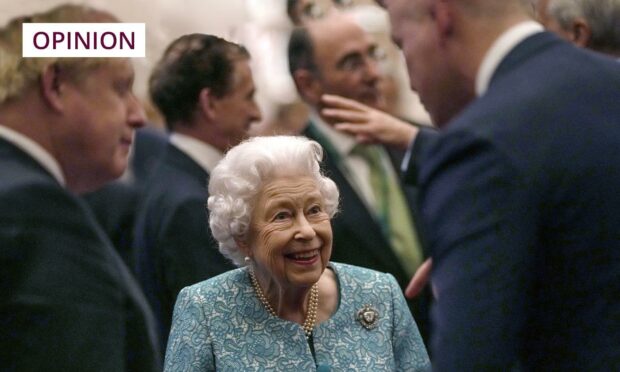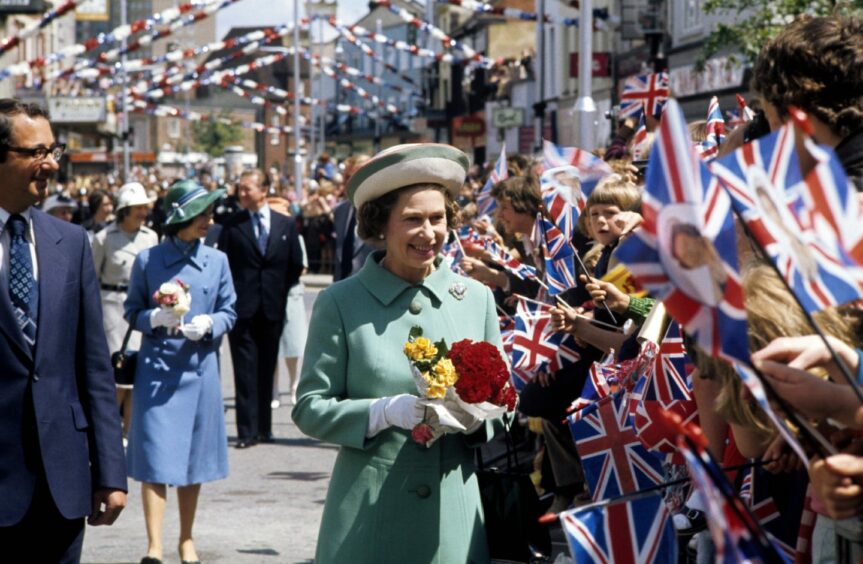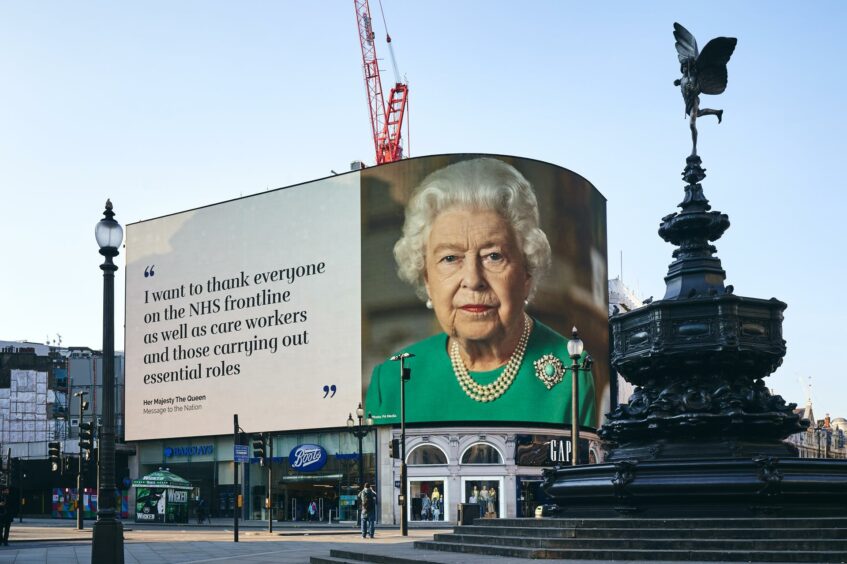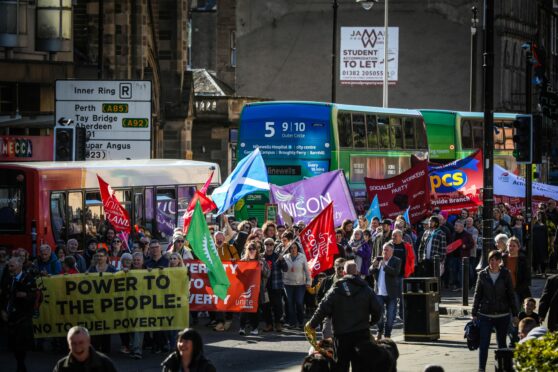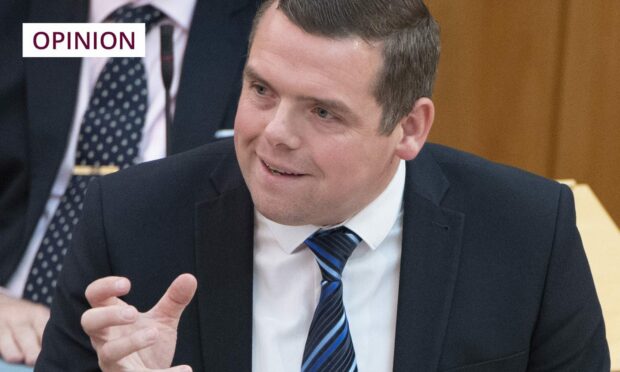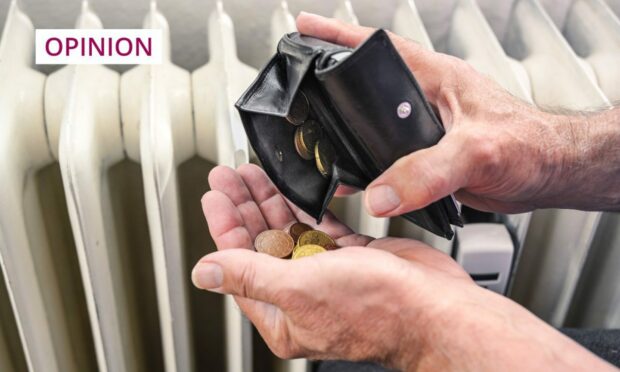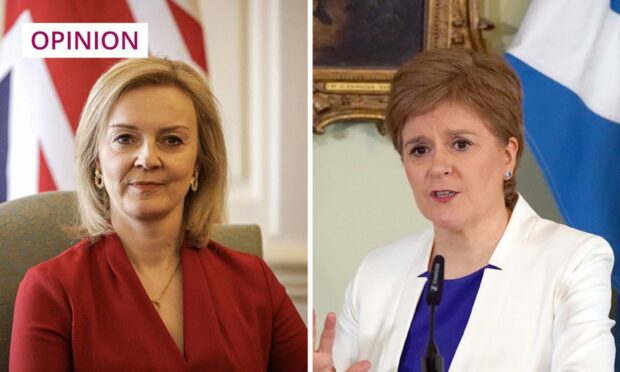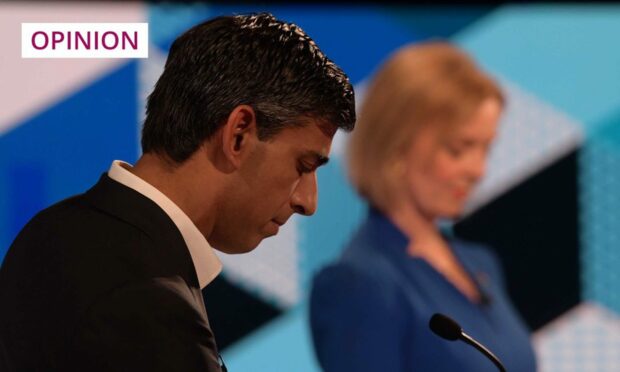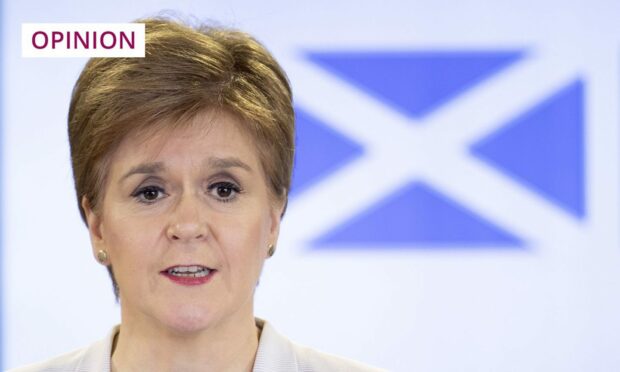A Happy birthday to Her Majesty the Queen, who turns 96 tomorrow. What a wonderful age.
I do hope she has a day to remember, filled with all her favourite people and favourite things. It’s the least she deserves.
June will of course bring another celebration – the platinum jubilee – when the country will celebrate 70 years of service from the Queen to the country.
It is also likely to bring a deep, but hopefully respectful, conversation about the role of the monarchy in shaping our country’s past, present and future.
And given the jubilee marks the Queen’s reign over the United Kingdom, the Realms and the Commonwealth, it’s appropriate to ask questions of empire and legacy.
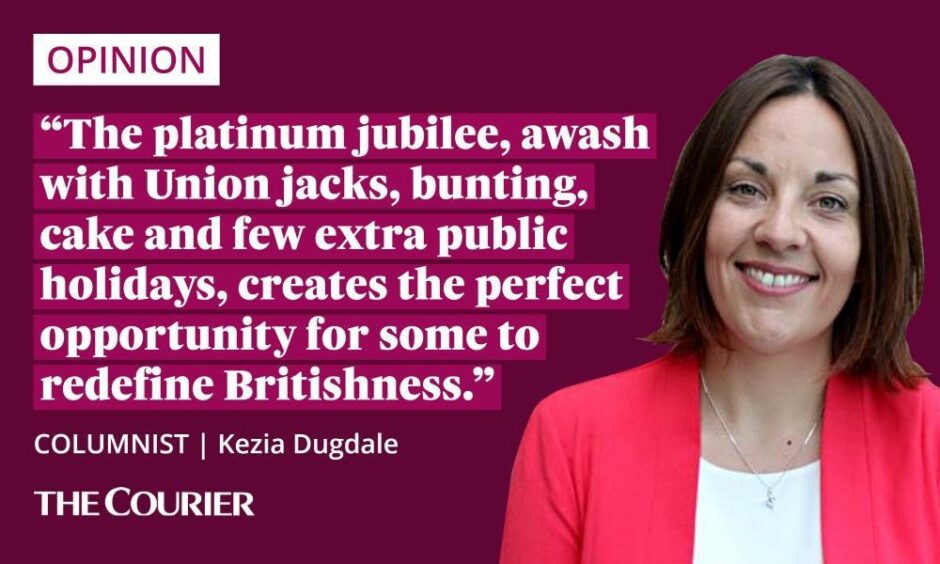
The Duke and Duchess of Cambridge’s recent trip to Jamaica highlighted some of those tensions.
Images of the royals reaching out to well-wishers through wire fences and riding aloft on Range Rovers in full military gear could have been mistaken for pictures taken in the 50s and 60s – were it not for the guards wearing Covid masks in the background.
The Duke delivered a carefully crafted speech in Jamaica which professed “profound sorrow” over the “abhorrent” slavery that took place.
But he stopped short of offering an apology. Something which many other institutions and organisations are doing now.
What is the purpose of royalty in 2022?
The controversies around Prince Andrew are well rehearsed. But they too pose broader questions.
Such as, what is a member of the royal family meant to do, if they are not occupied by a full diary of public engagement activities?
Today The Duke and Duchess of Cambridge used the same Land Rover that Queen Elizabeth and Prince Philip used on their visit to Jamaica in 1994 🇯🇲 🛻 pic.twitter.com/S24JIUgqfz
— CoutureAndRoyals (@CoutureRoyals) March 24, 2022
Should they have paid jobs like the Dutch royal family?
How many active royals should there be?
And what is their role in the 2020s in a world where Britain is no longer the imperial force it used to be?
A shrinking Empire and evolving geopolitics mean royal visits now feel like they’re required to shore up relations. To prove relevance rather than to exercise it.
How does a divided country mark a platinum jubilee?
All of these questions will come.
As will attempts to reinvigorate our sense of national identity in a post Brexit era.
The platinum jubilee, awash with Union jacks, bunting, cake and few extra public holidays creates the perfect opportunity for some to redefine Britishness.
A chance to bottle it and sell it through political discourse.
This is dangerous and delicate territory. Particularly when at least 45% of this country rejected its Britishness in the last independence referendum.
And it’s not just a Scotland thing.
I asked a friend who lives in London if she thought her street would have a platinum jubilee party. She’s sure that would never happen.
She described her street as really diverse. And while she loves and celebrates that, it does mean that the monarchy represents too many different things to too many different people for them all to unite around it, cake or no cake.
Marking the platinum jubilee is also clearly triggering for anyone who sees the monarchy as a symbol of the gap between the haves and have nots.
Aristocratic families from across Europe will be loaning their family jewels to @Sothebys for the occasion. Here's a sneak peek. https://t.co/0gTO2BzBRI
— Vogue Arabia (@VogueArabia) April 15, 2022
All that grace and favour lifestyle, extreme wealth and privilege on display at a time when people are struggling to heat their houses and feed their families.
All of these considerations are divisive. And they divide us at a time when we have far less tolerance and patience for views different to our own than at any time during the Queen’s entire reign.
We’re so polarised now as a people and a country, I worry that we will struggle with understanding all of these tensions and still wishing all the very best for the Queen herself.
Thanks for the Queen and a life of service
She is of course the first ever monarch to reign for 70 years.
And her entire life has been devoted to public service.
She’s had a weekly audience with 14 different prime ministers, from Sir Anthony Eden to Boris Johnson.
The list of world events she has lived through and the service she has given to her country is utterly remarkable.
Two standout memories of the pandemic for me involve the Queen.
The first was her national address during the first lockdown, when she spoke of better days to come and invoked the spirit of Vera Lynn’s wartime song, assuring us “we would meet again”.
The second is the image of her in the pews at Westminster Abbey, mourning the death of her husband, Prince Phillip, alone because of the Covid rules.
It’s a picture that will now always sit in stark contrast to the knowledge that our democratic leaders were having a rule breaking party in number 10 the night before.
And it’s this humanity that connects us to her.
When we see her as the mother and matriarch of a family, as flawed and complex as any other.
When we see her as someone who has had to suffer and sacrifice just like us.
Because under all that pomp and ceremony, and the questions they provoke, is a women who deserves a very big and heartfelt Happy Birthday.
